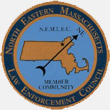Substance Misuse and Mental Health Support Resources for Winchester Residents: Call 988 Suicide and Crisis Lifeline for 24/7 confidential support. Visit Winchester’s Resource page for assistance. Resources for Support | Winchester, MA – Official Website
Computer Crime
The Computer Crime Unit (CCU) provides forensic and investigative services
to NEMLEC agencies and other law enforcement agencies if/as designated
by the Executive Board. The unit is also responsible for training
police in computer crime investigations, providing community-based
Internet Safety Training and investigating all forms of crimes
facilitated by the use of high technology (computers) within our
jurisdictions. The unit in Medford serves Middlesex County, and
Peabody serves Essex County.
Mission:
CCU is composed of specially trained officers who:
- provide an enhanced investigative and computer
forensic component to existing NEMLEC units and members, - provide an operational laboratory and training
facility to NEMLEC units and members, - coordinate a regional NEMLEC computer crime task
force, - provide risk assessments, public awareness and
cyber-crime prevention training to member departments.
Services:
Investigation
CCU officers, trained to respond and investigate complex and
increasingly common computer-related crimes, provide member agencies
with specialized investigative services for a broad range of offenses:
- Crimes in which a computer, the Internet or other
form of electronic communication was utilized, including but not
limited to: - Internet based Child Exploitation & Child
Pornography, Child Sexual Solicitation - Internet Threats/Extortion, STAR Incidents
- Cyber-Stalking/Cyber-Harassment &
Annoyance/Domestic Abuse-R.O. Violations Online - Internet-based Access Device Fraud,
Unauthorized/Fraudulent Use of Credit Cards/Passwords - Hacking/Computer Trespass and Exceeding
Authorization/Theft of Computer Services - Viruses/Destruction & Altering Computer
Data, Denial of Service Attacks - Computer-based Forgery, Counterfeit Products,
Labels, Trade Marks and Software Piracy - Internet/Computer-based Identity Theft and Frauds
and Scams - Computers and Component Theft, Internet-based
Receiving/Buying Stolen Equipment - Theft of Trade Secrets, Economic Espionage
- other offense for which knowledge and/or
utilization of computers or related technologies was used in
communicating, planning or perpetration the crime.
Specific examples of computer crime by category
| Personal Crimes | Property Crimes |
|---|---|
| Cyber-Threats | Cyber-Larceny |
| Cyber-Identity Theft | Cyber-Fraud |
| Cyber-Harassment | Cyber-Theft of Trade Secrets |
| Cyber-Violations R/Orders | Cyber-Vandalism/Destruction |
| Cyber-Stalking | Cyber-Copyright Infringement |
| Computer Hacking | Theft of Computer Services |
| Possession/Dissemination Child Porn, Luring/ Enticing Minors |
Internet Counterfeit Products/Labels |
| National Protection |
Financial Crimes |
| Cyber-Theft of Government Secrets |
Online Credit Card Fraud |
| Online Economic Espionage |
Electronic Funds Trans. Fraud |
| Cyber-Terrorist Activity |
Computer Desktop Forgery |
| Cyber-Threats to Gov. Officials |
Electronic Counterfeiting |
| Cyber Attacks to Critical Systems |
Online Auction Fraud |
| Online Criminal Disorder and Anarchy |
Corporate Identity Fraud |
| Internet Bomb Making and Weapons of Mass Destruction |
Internet Scams |
Training
The CCU provides a full range of computer crime
investigation and forensic training to officers from member agencies.
This training ensures all NEMLEC agencies have officers skilled in the
response and investigation of computer crimes. Training areas include:
NEMLEC CCU will be offering specialized training
(basic & advanced) in the following areas:
- Basic & Advanced Computer Crime
Investigation & Response Training - Basic & Advanced Computer Forensic Training
- Safety & Cyber Crime Prevention Training
- Computers/Network Security Training
- Internet Safety Lectures
- WEB-Based Training
Community Education
The Computer Crime unit also provide periodic information sessions to
the community, training citizens on the basics of computer crime and
prevention measures.




